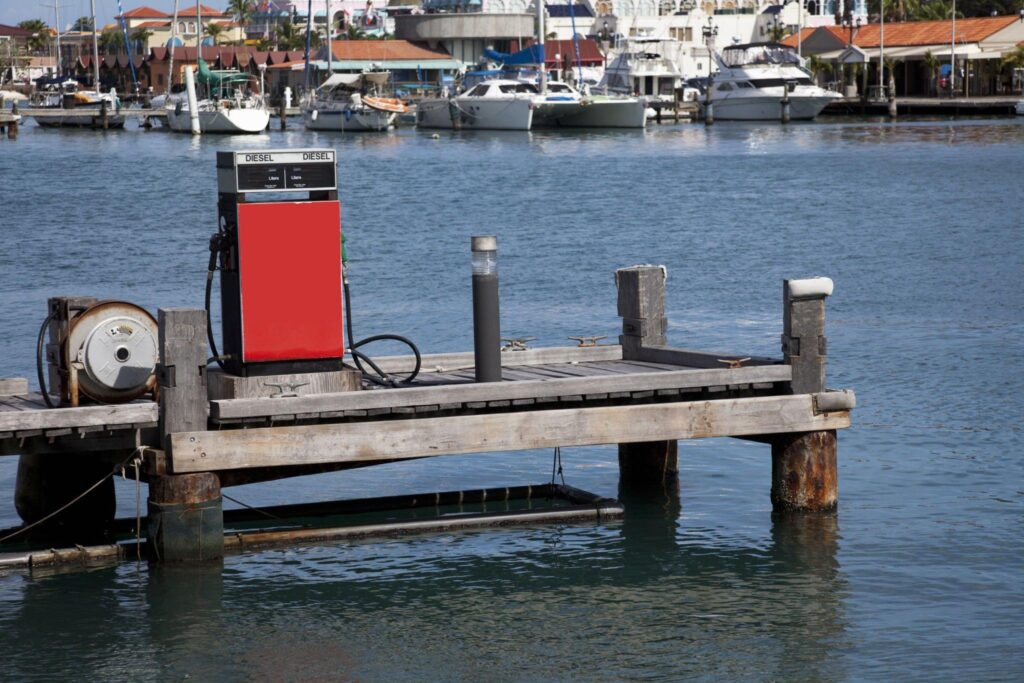Yes, fishing boats use red diesel as it is a tax-advantaged fuel for vessels that operate on inland and coastal waters. Red diesel is dyed with a red marker to indicate the lower tax rate and is suitable for boats that are not used for propulsion on public highways.
Fishing boats are an essential part of the fishing industry, and they need a reliable and cost-effective fuel source. One such fuel is red diesel, which is a tax-advantaged fuel used by marine vessels. Red diesel fuel is dyed with a red marker to indicate that it is ineligible for road use and falls under a lower taxation rate.
Therefore, fishing boats operating in inland and coastal waters primarily use red diesel as a cheaper and more economical option. In this article, we will explore more about red diesel and its uses in the fishing boat industry.

Table of Contents
What Is Red Diesel Fuel?
Red diesel fuel is a tax-efficient form of fuel used primarily by businesses. It is often used in off-road vehicles and machinery such as tractors, generators and fishing boats. The red dye added to the fuel identifies it as non-road diesel, meaning it cannot be used in vehicles traveling on public roads.
The use of red diesel fuel is legal, but only for specific purposes such as agriculture, forestry, and fishing. Technically, the use of red diesel fuel is considered tax evasion if not used for its intended purposes. The hm revenue and customs sporadically carry out enforcement checks to ensure compliance with tax rules.
Use Of Red Diesel Fuel In Fishing Boats
Fishing boats are commonly referred to as agp or auxiliary registered vessels and, unlike commercial boats, are allowed to use red diesel fuel. While this fuel is illegal for use in cars and other road vehicles, fishing boats are allowed to use it under certain circumstances.
The law states that red diesel can only be used for heating, lighting, cooking, and propelling non-road mobile machinery, which includes fishing boats. Additionally, red diesel is highly beneficial for fishing boats as it is much cheaper than regular diesel fuel.
This means that fishing boats can save significant amounts of money on fuel costs which is particularly important for small, independent fisherman who operate on limited budgets. As such, the use of red diesel in fishing boats is both legal and practical.
The Controversy Surrounding The Use Of Red Diesel Fuel In Fishing Boats
The use of red diesel fuel in fishing boats has sparked controversy for years. Investigations have been carried out to determine the views of fishing boat owners on the issue. Red diesel fuel has been noted for its environmental impact on the water bodies where fishing boats operate.
The oily and highly toxic substance poses a threat to marine life and can lead to enormous pollution of the water sources. Therefore, some environmental groups have protested against the use of red diesel fuel in fishing boats. However, some fishermen have defended its use, citing affordability and convenience.
Despite the ongoing debate, the authorities are yet to come up with a conclusive decision on the use of red diesel fuel in fishing boats.
Alternative Fuels For Fishing Boats
Fishing boats have always used red diesel, but this fuel takes a toll on the environment. Alternative fuels like biodiesel, electricity, and hydrogen could prove to be game changers. Biodiesel is derived from vegetable oils and can be used in traditional diesel engines.
Electricity-run boats are emission-free, and hydrogen has the potential to be a clean and sustainable fuel source. Alternative fuels have many advantages such as economical and environmental benefits, but they also have drawbacks like expensive prices and lack of infrastructure.
Nevertheless, the fishing industry needs alternative fuel technologies to protect the oceans and reduce greenhouse gas emissions.
Frequently Asked Questions On Do Fishing Boats Use Red Diesel
Do Fishing Boats Use Red Diesel?
Yes, most fishing boats use red diesel. Red diesel is a tax-reduced fuel type that is ideal for marine vessels and is used by many fishing boats for their engines and generators.
Why Do Fishing Boats Use Red Diesel?
Fishing boats use red diesel because it is a cheaper fuel type that is taxed at a lower rate than regular diesel. It also provides good energy efficiency and is widely available for marine vessels.
Can Recreational Boats Use Red Diesel Too?
Yes, recreational boats are allowed to use red diesel. However, they must pay the full amount of tax on the fuel, rather than the reduced rate that commercial vessels pay.
Are There Any Restrictions On Using Red Diesel?
There are some restrictions on using red diesel. It can’t be used for any land-based vehicles or machinery, and it can’t be sold for that purpose either. It is strictly for marine vessels and certain other types of off-road machinery.
What Are The Benefits Of Using Red Diesel For Fishing Boats?
Using red diesel for fishing boats can offer several benefits, including lower fuel costs, better fuel efficiency, and a reduced environmental impact. Additionally, it helps to support the local fishing industry by keeping operating costs low.
Conclusion
Fishing boats are an important aspect of the fishing industry, which is essential in providing food for our growing population. It is, therefore, crucial to understand the laws that govern the use of fuel by these boats. From our discussion, it is clear that fishing boats use red diesel as their primary source of fuel.
It is the most cost-effective fuel and has lower taxes compared to regular diesel. However, it is essential to note that red diesel has strict regulations on its usage. Fishing boats must operate within these rules to avoid hefty fines or penalties.
It is paramount for the industry players to adhere to these regulations to ensure sustainability and reduce environmental impacts. We have seen that the uk government is shifting towards the green revolution, encouraging the use of cleaner fuel options.
The future of fishing boats might entail a transition into cleaner energy sources, and it is essential to stay informed and compliant with the changing regulations.
You may also like:
